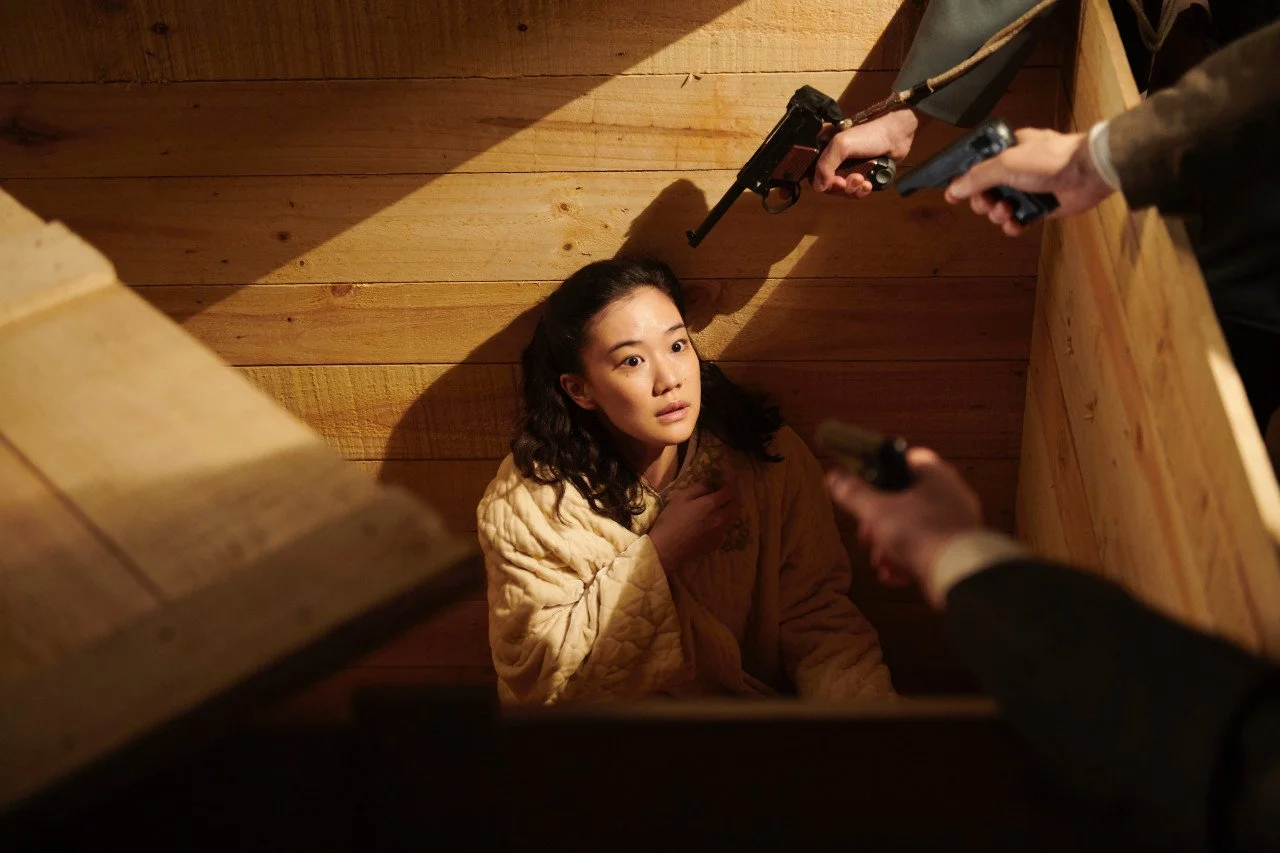Wife of a Spy: Japan’s Brutal History Viewed Through a Hitchcockian Lens
By Liam Lacey
Rating: A
About 20 years ago, when I interviewed the Japanese director and film professor Kiyoshi Kurosawa, best known for his angst-filled J-Horror films, he described himself as a filmmaker steeped in film history, who sees each film is “in some ways a commentary on the history of film that has preceded it.”
That awareness of film’s imprint on history was already obvious in his 2001 breakthrough Pulse, about a hypnotist and serial killer-by-proxy, in which he created a disturbingly credible looking late-19th century film clip of a mesmerist and his subject.
The intersection of film and history is central to his new film, Wife of a Spy, the 66-year-old director’s first period film, which won the Silver Bear best director prize at the recent Venice Film Festival. On a basic level, Wife of a Spy is an homage to Alfred Hitchcock, especially his 1940s paranoid romance thrillers, Suspicion and Notorious. Co-written by the director and two of his former students, Ryûsuke Hamaguchi and Tadashi Nohara, it has the classic thriller structure of a film from the period in which its set.
The suspicious husband in the film, Yusaku Fukuhara (Issey Takahashi), is a man who runs a successful import-export business in the port city of Kobe and has a passion for making amateur films. One of these is a heist drama, starring his wife Satoko (Yû Aoi) and his nephew and employee, Fumio (Ryôta Bandô). These films within the film create moments which can be confusing, but also reminds us that Kurosawa is playing with conventions.
The Fukuharas are self-consciously cosmopolitan, a moderately wealthy young couple enjoying not only the latest Kenji Mizoguchi film but also Western-style clothes and whisky. Satoko is the privileged spouse with a personal maid who doesn’t need to be exactly certain about what exactly her husband does for a living. Her journey, from passive innocence to vigilant awareness, marks the psychological centre of the film.
PROUDLY SUPPORTS ORIGINAL-CIN
Early on, one of Yusaku’s British associates, a silk merchant, is arrested on charges of espionage. That triggers a visit from Satoko’s childhood friend, Taiji (Higashide Masahiro), now a zealous squad leader in the government security forces. The straight-arrow Taiji, who has a barely concealed crush on Satoko, warns the Fukuharas that in these dangerous times, these Western affectations arouse suspicion.
Soon after, Satoko has reason to be suspicious of her husband herself, when Yusaku returns from an extended medicine-buying business trip in Mongolia with Fumio, who shortly quits his job, saying he wants to write a novel about the Manchurian experience before he gets drafted.
Through Taiji, Satoko learns that the two men travelled with a woman and arranged for her to get a job at an inn, where the woman was subsequently murdered. Suspecting that her husband may be both a traitor and an adulterer, she decides to seek out Fumio at the inn where he’s staying. She finds the young man frightened and angry with her for her willfully privileged blindness. He concludes their conversation by giving her an envelope to take to Yusaku.
When she confronts her husband, Satoko finally learns what Yusaku has been up to. His real crime has been shooting a bit of film, which, in a sense, becomes the Hitchcockian McGuffin of the story: an important object or device to advance the plot and motivate characters, though not in itself determinative of the outcome.
For Yusako and Satoko, the top-secret document is initially a wedge between them, an object that inspires betrayal, and eventually a symbol of their shared devotion to each other and to a higher cause.
There are a couple of great scenes, where the newly committed couple, like expectant parents shopping for a nursery, begin exchanging cash for jewelry, planning their escape, while the camera hovers at a distance, like a surveillant eye.
The all-important film clip is surreptitious footage of medical notes, and briefly, flickering black-and-white scenes of smiling Japanese doctors posing with victims of the Kwantung Army’s notorious Unit 731 (not named in the film). This was the unit that conducted lethal biological and chemical experiments on thousands of Manchurian civilians.
Japan only reluctantly officially acknowledged the unit’s existence in the late nineties, and names of its members weren’t published until 2018. Kurosawa’s simulated documentary footage feels authentic enough to produce a shudder of revulsion.
Wife of a Spy is in some ways an imperfect film, sometimes stiff at the joints or broadly obvious, but it’s also carefully crafted and conceptually inspired. Once the vintage thriller elements and domestic drama have been resolved, Kurosawa shifts register in its epilogue to scenes of almost ritualistic tragedy, set against the backdrop of the carpet fire-bombing of Kobe in 1945.
The conclusion is a sobering and timely reminder of those few stumbling steps between the comfortably ordinary and social catastrophe.
Wife of a Spy. Directed by Kiyoshi Kurosawa. Starring Issey Takahashi, Yû Aoi, and Ryôta Bandô. Available in select theatres October 22; opening wider throughout the fall.



